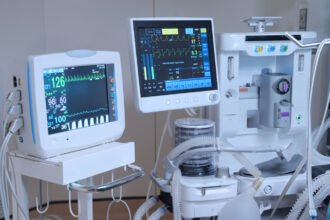Effective this month, CMS will institute its Value-Based Purchasing (VBP) Program, changing how providers get reimbursed for services provided to Medicare and Medicaid patients.
Effective this month, CMS will institute its Value-Based Purchasing (VBP) Program, changing how providers get reimbursed for services provided to Medicare and Medicaid patients.
It’s been well documented that VBP ties a hospital’s overall reimbursements for Medicare and Medicaid services to a hospital performance score based on improved clinical care and patient experience measures. With the goal of cutting down on unnecessary readmissions and improving the overall quality of care, one percent of existing Medicare/Medicaid payments (roughly $850 million) will be will be available for distribution to hospitals with qualifying scores tied to post-discharge patient experience.
A rapidly changing healthcare landscape and the new reimbursement rules associated with Value Based Purchasing paint a cloudy picture for the future of hospital finances:
- The AHA estimates that hospitals only receive reimbursements between 92 and 93 cents for every dollar spent on Medicare and Medicaid services, and Medicaid expansion will only continue to put financial pressure on hospitals
- Commercial payer volume, which has previously covered the loss that hospitals took on Medicaid volume and uncollected bad debt, is shrinking with the growing Medicaid population and an increased out-of-pocket payment burden on individuals
- Hospitals have collected on these payments at poor rates and may begin to confront the possibility of negative operating margins and long-term financial instability if they do not find a way to collect out-of-pocket payments more efficiently
If hospital collections efforts for individual patients are to be improved, patient satisfaction and engagement could be the key. A recent Press Ganey study on patient satisfaction shows a strong correlation between patient satisfaction and hospital profitability, indicating that patients who are satisfied with their care are more likely to pay their bills and return to the same hospital for additional medical needs. Additionally, patients who remain engaged post-procedure and receive explanations regarding their fiscal responsibility are more likely to pay their medical bills, with each day that passes after the procedure representing a decrease in the likelihood of payment. Recent pushes toward shortening the A/R timeline and increases in financial transparency and simplicity highlight hospitals’ increased understanding of the importance of guiding the patient through the billing process.
Hospitals are currently facing strong economic incentives that are further aligning their care with the patient and their needs, and from every segment of their payer population. Over time, patient satisfaction is becoming crucial to a hospital’s sustained financial health and will continue to grow in importance as the payer landscape and Medicare and Medicaid reimbursements continue to shift over the next few years.
Let us know what you think.
Burke Hall







